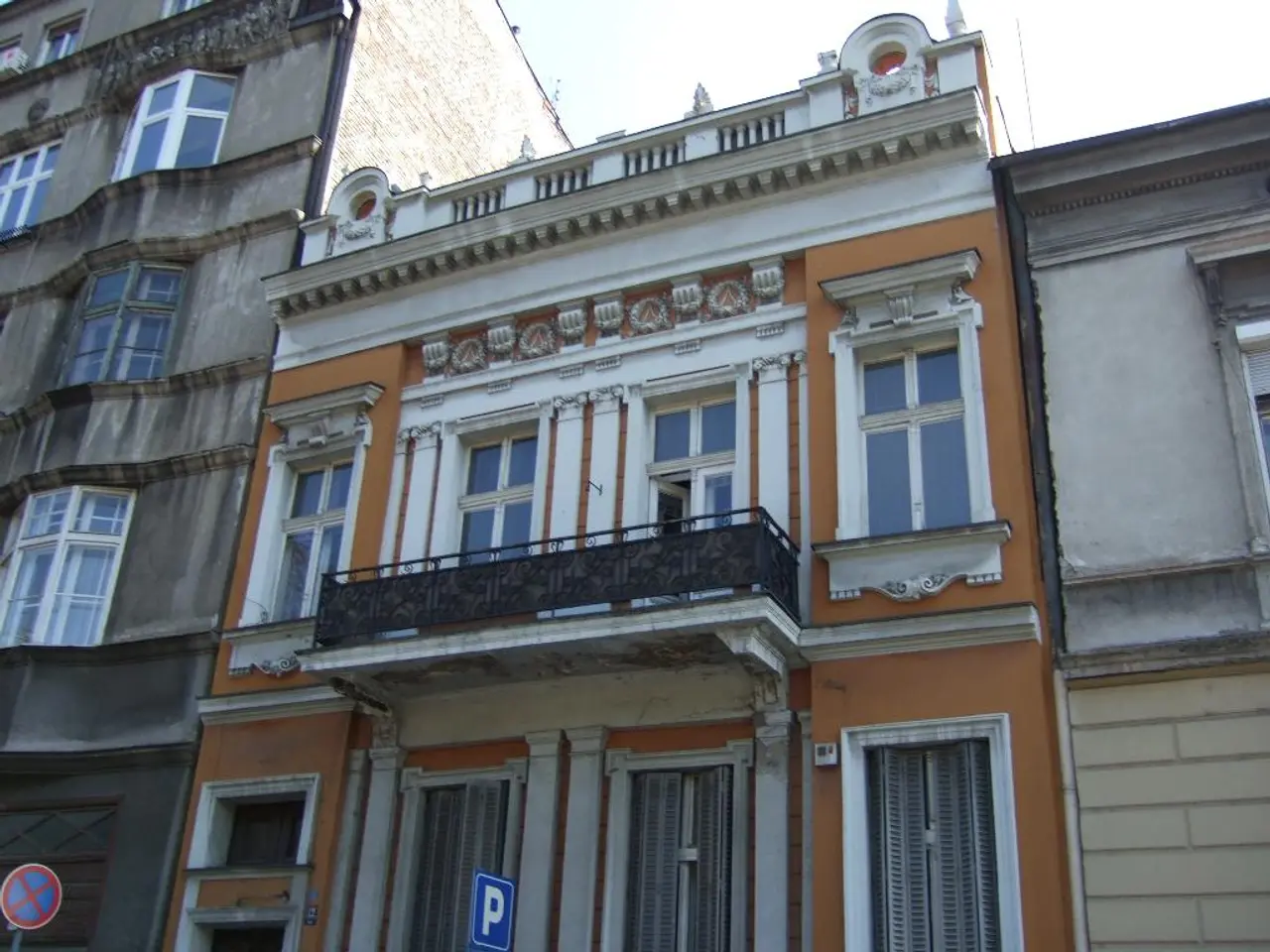The controversy over whether an enclosed or open porch suits a home better is determined by the design of the property, according to the experts' opinions.
In the realm of home improvement, the decision to install an enclosed or open porch can significantly impact a property's functionality, cost, compliance, and long-term value. Here's a detailed comparison of these two popular home additions.
**Functionality**
Enclosed porches provide greater protection from the elements, making them usable year-round, depending on insulation and heating options. They allow installation of amenities such as fireplaces (gas or electric) with proper ventilation and safety measures, and can be designed to include lighting and fans for comfort. These structures add more flexible living space connected to the home, acting as an extension of the indoor living area.
On the other hand, open porches offer an open-air outdoor experience, suitable for warm weather use but limited in bad weather or colder seasons. They are generally simpler, often just shade or lattice roofs that do not fully protect against rain or sun heat.
**Cost**
Enclosed porches, due to their construction materials, enclosure panels/screens, insulation, and potential HVAC systems, tend to be more expensive. Additional costs can arise from fixtures like fireplaces and specialized lighting. Professional installation may also be required to ensure compliance with codes and safety, further increasing costs.
Open porches, however, typically have lower construction and materials costs due to their simpler structures like open lattice roofs or basic shade covers. They also tend to have less complexity and lower maintenance costs over time.
**Compliance**
Enclosed porches must meet specific building codes related to structural safety, ventilation (especially if including fireplace installations), electrical safety, and weatherproofing. Enclosures may need permits, especially if heated or connected to utilities.
Open porches, being less complex, often do not require as many building code requirements. They may not need permits depending on their size and design.
**Long-term Value**
Enclosed porches add to a home’s usable living space and can increase property value due to their versatility and year-round usability. They protect furniture and appliances, reducing replacement costs, and offer potential for seasonal comfort, increasing resale appeal.
Open porches enhance outdoor aesthetic appeal and provide casual entertainment space. However, they may not increase property value as much due to their limited weather protection, and furniture and appliances are exposed, requiring more frequent maintenance or replacement.
**Summary**
Enclosed porches are more functional for year-round use, provide greater protection, and add long-term value but come with higher cost and stricter compliance requirements. They support integration of features like fireplaces and lighting, making them versatile living spaces.
Open porches offer simpler, cost-effective outdoor shading and casual use primarily in good weather but lack protection against the elements, which limits their functional season and potential value addition.
Choosing between them depends on factors such as climate, budget, intended use, and local building code requirements.
Joshua Weston, founder of Fourth Wall, is a Chartered Surveyor with experience in residential property design and planning. Fourth Wall, founded in late 2020, works on residential and commercial schemes, with a focus on social value and heritage site rejuvenation.
[1] Building Regulations Approval: https://www.gov.uk/build-your-own-home/permissions-and-approvals [2] Planning Permission: https://www.gov.uk/guidance/householder-planning-permissions [3] Energy Efficiency: https://www.energysavingtrust.org.uk/home-insulation [4] Building Code Requirements: https://www.gov.uk/building-regulations [5] Porch Ideas and Designs: https://www.porch.com/uk/porch-ideas-and-designs
- In the realm of home improvement, the addition of an enclosed porch can significantly impact a property's functionality, costs, compliance, and long-term value, compared to open porches.
- Enclosed porches offer protection from the elements, making them usable year-round, depending on insulation and heating options, providing flexible living space as an extension of the indoor living area.
- Open porches offer an open-air outdoor experience, suitable for warm weather use, but their use is limited in bad weather or colder seasons, as they do not provide full protection against rain or sun heat.
- Enclosed porches, due to their construction materials, enclosure panels/screens, insulation, and potential HVAC systems, tend to be more expensive compared to open porches, which have lower construction and materials costs due to their simpler structures.
- Enclosed porches must meet specific building codes related to structural safety, ventilation (especially when including fireplace installations), electrical safety, and weather proofing, while open porches often do not require as many building code requirements.
- Enclosed porches may need permits, especially if heated or connected to utilities, while open porches, being less complex, may not need permits depending on their size and design.
- Enclosed porches add to a home’s usable living space and can increase property value due to their versatility and year-round usability, while open porches may not increase property value as much due to their limited weather protection.
- A summary of the comparison shows that enclosed porches are more functional for year-round use, provide greater protection, and add long-term value, but come with higher costs and stricter compliance requirements.
- On the other hand, open porches offer simpler, cost-effective outdoor shading and casual use primarily in good weather, but lack protection against the elements, which limits their functional season and potential value addition.
- Choosing between enclosed and open porches depends on factors such as climate, budget, intended use, and local building code requirements.
- Joshua Weston, founder of Fourth Wall, a residential property design and planning company with a focus on social value and heritage site rejuvenation, provides guides on Building Regulations Approval, Planning Permission, Energy Efficiency, and Porch Ideas and Designs for homeowners considering a porch addition.








